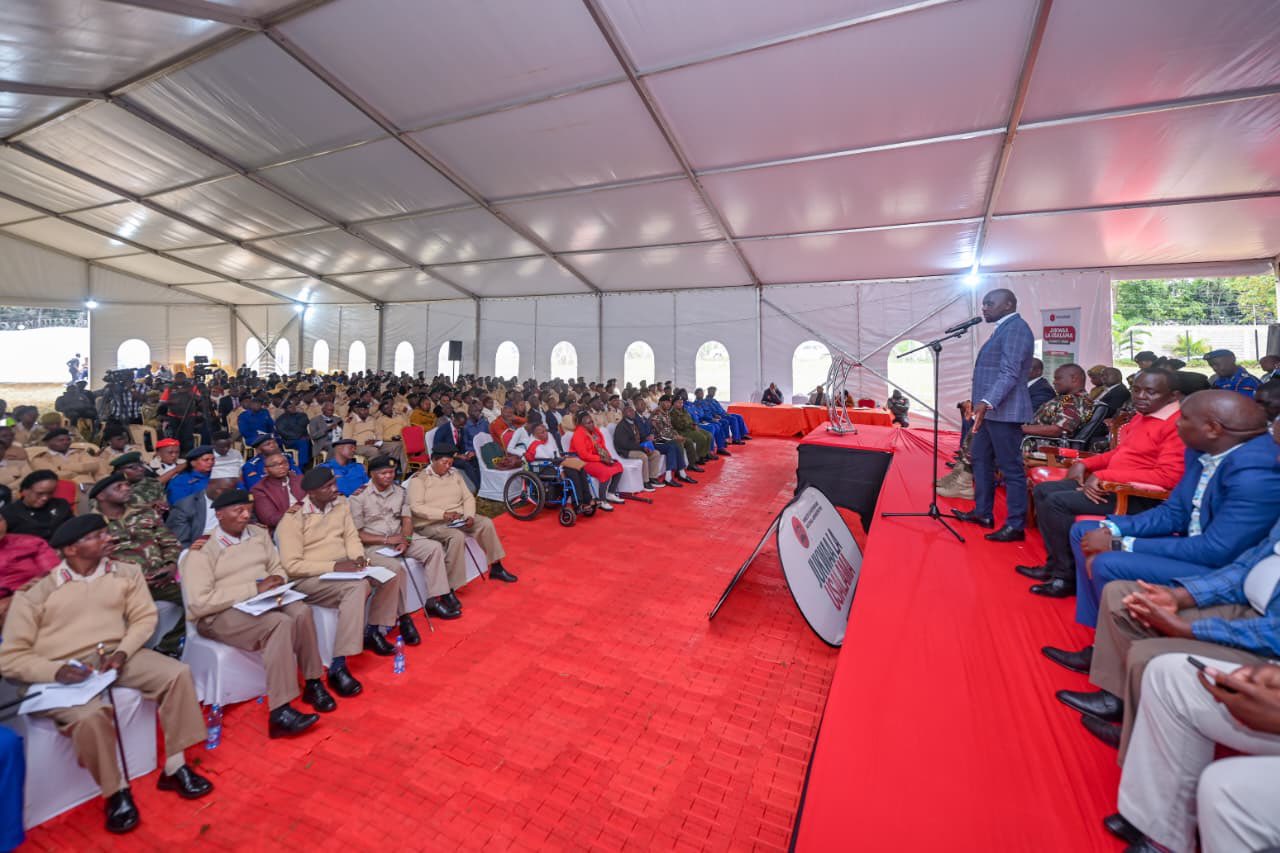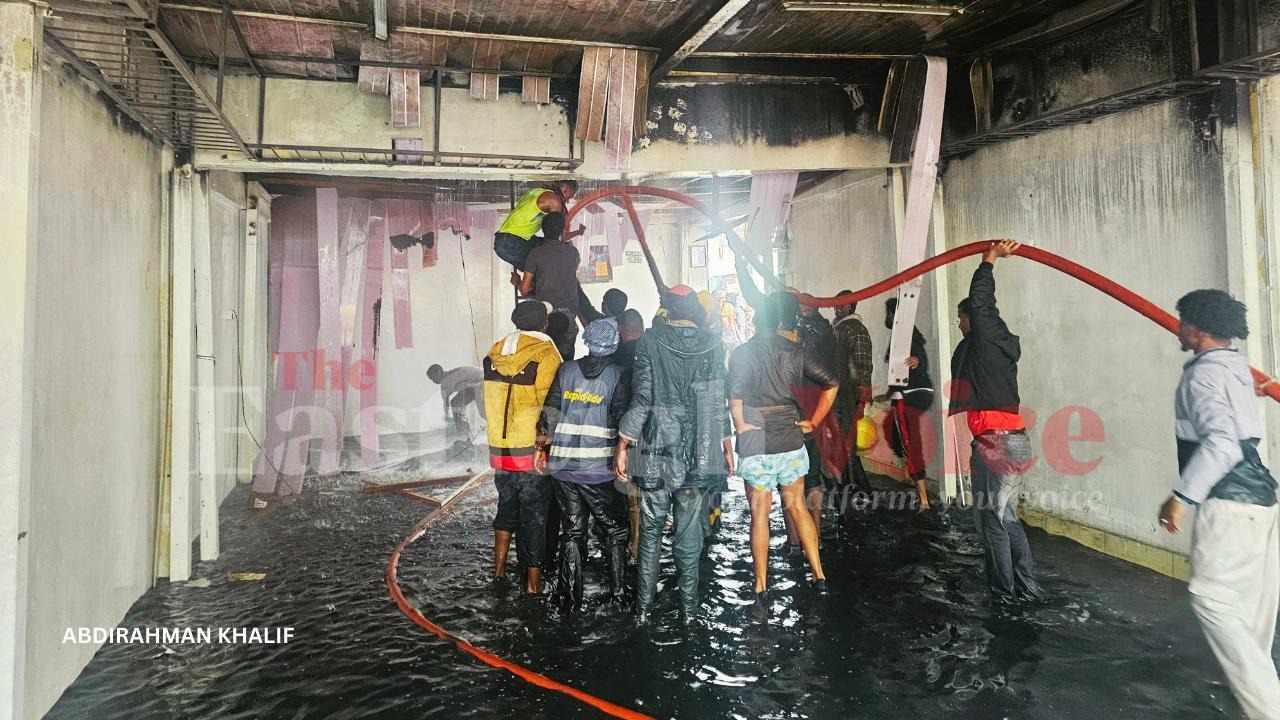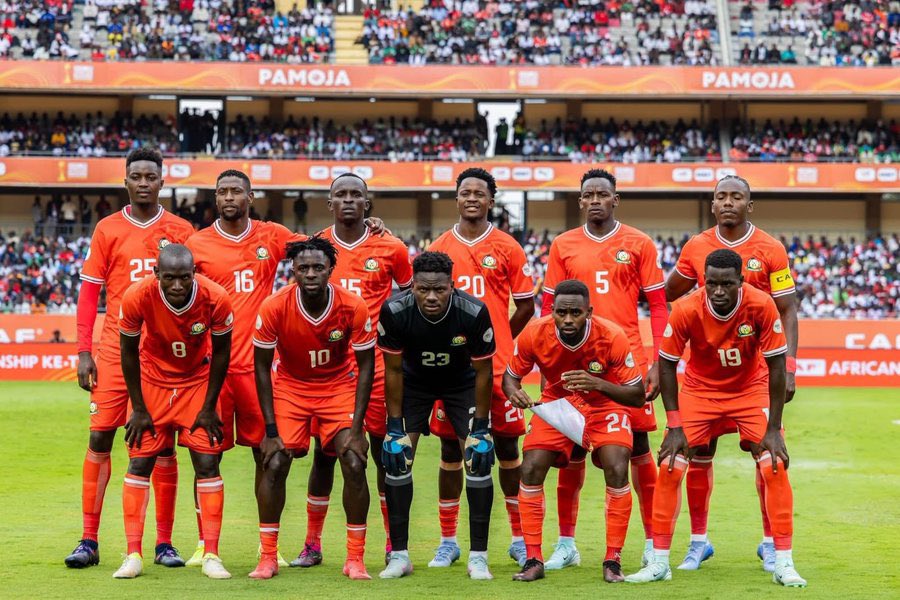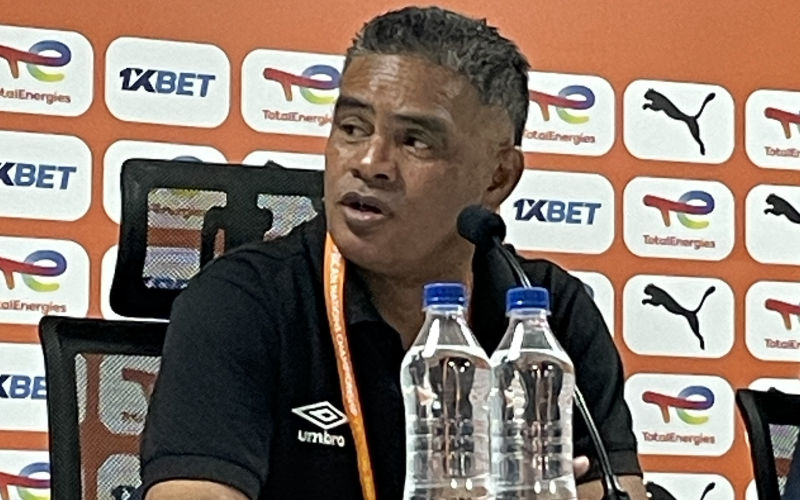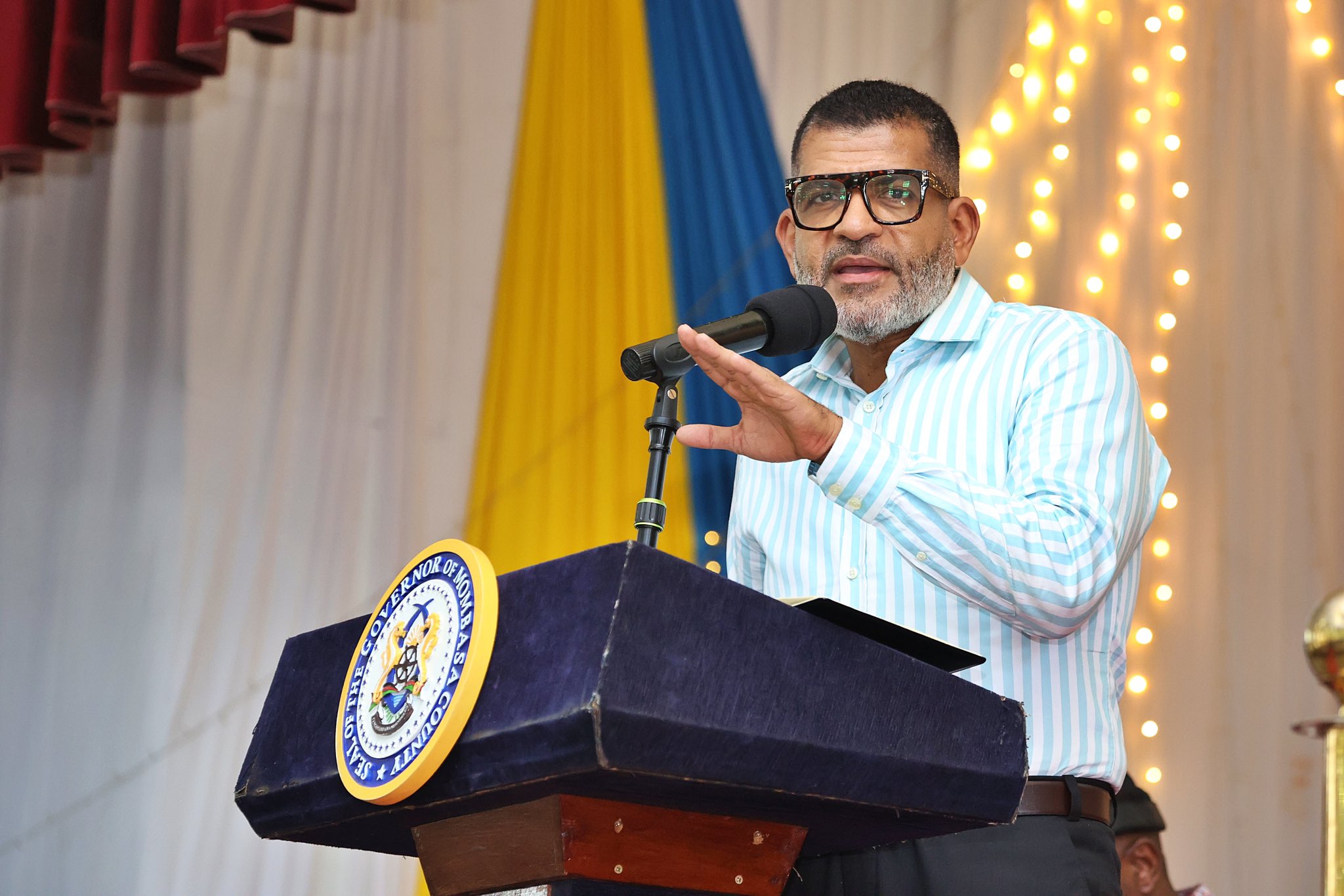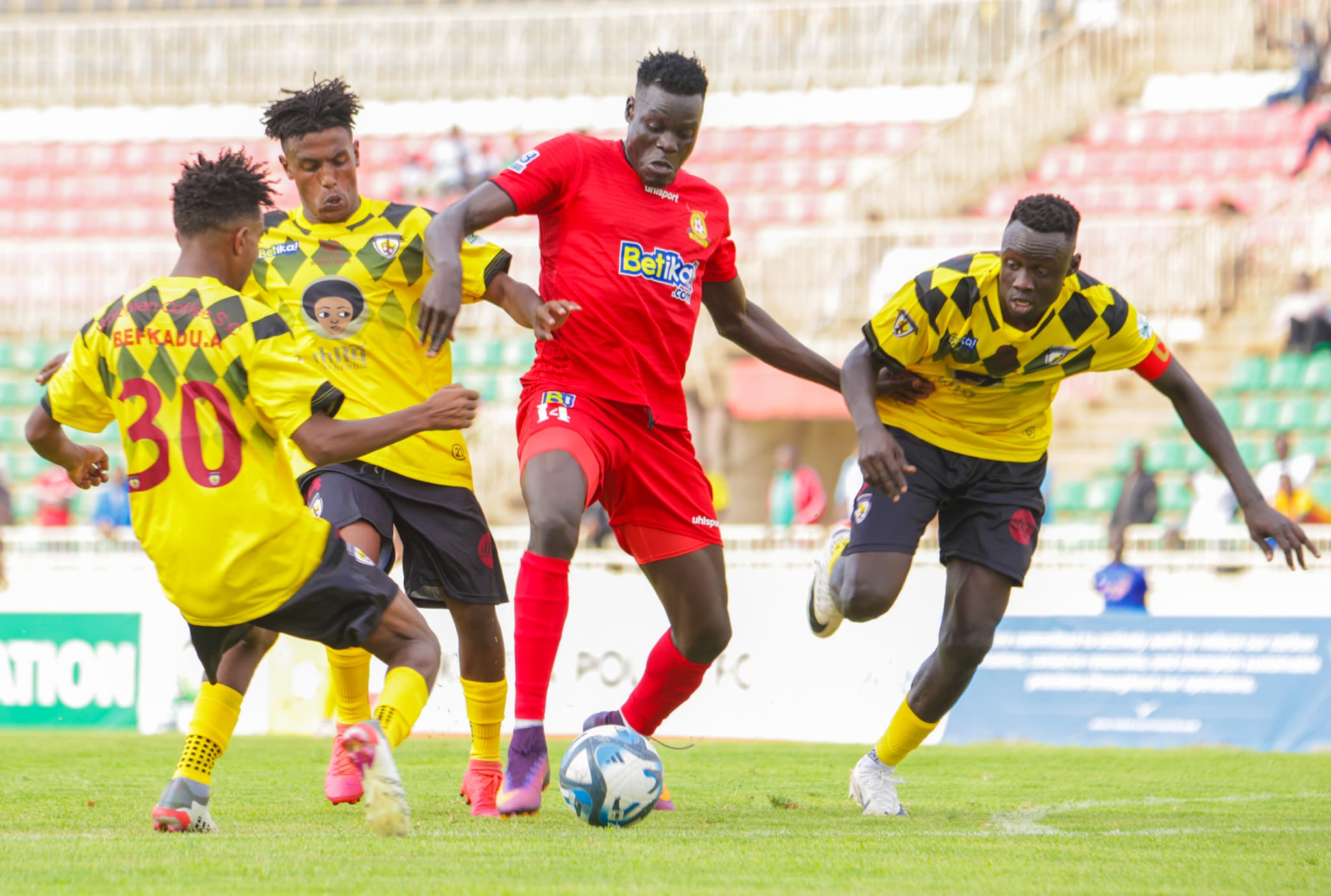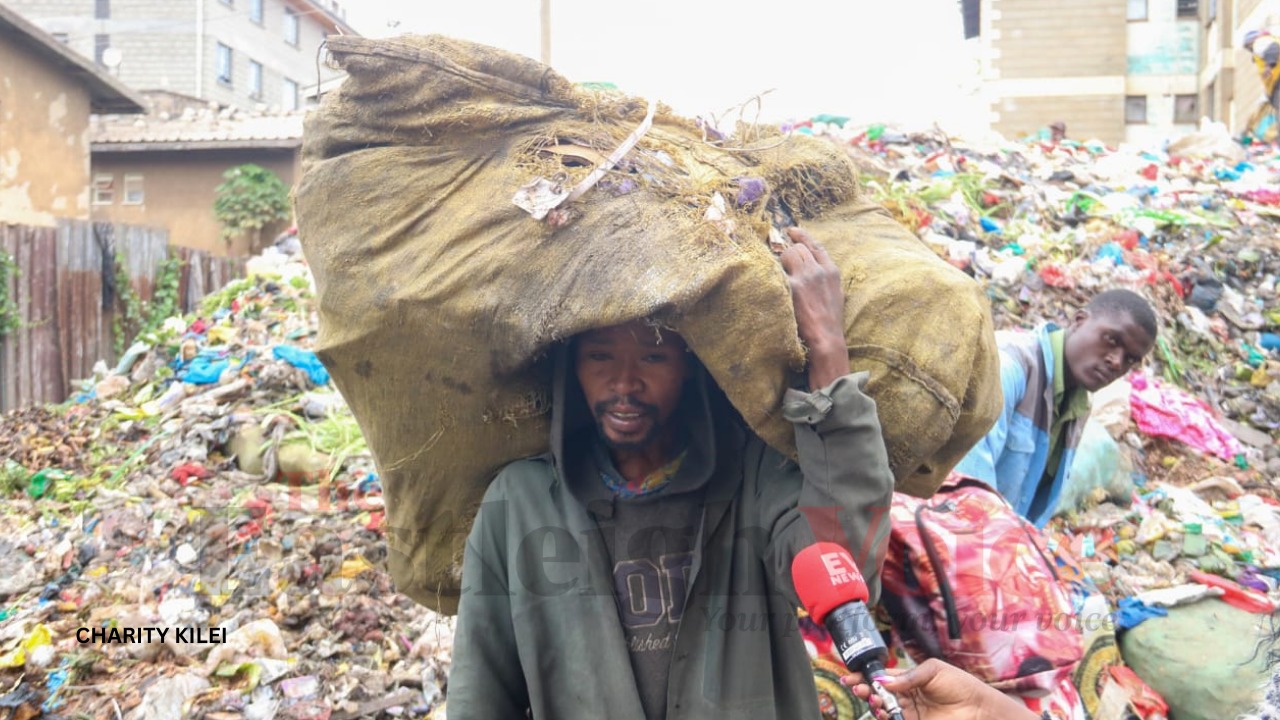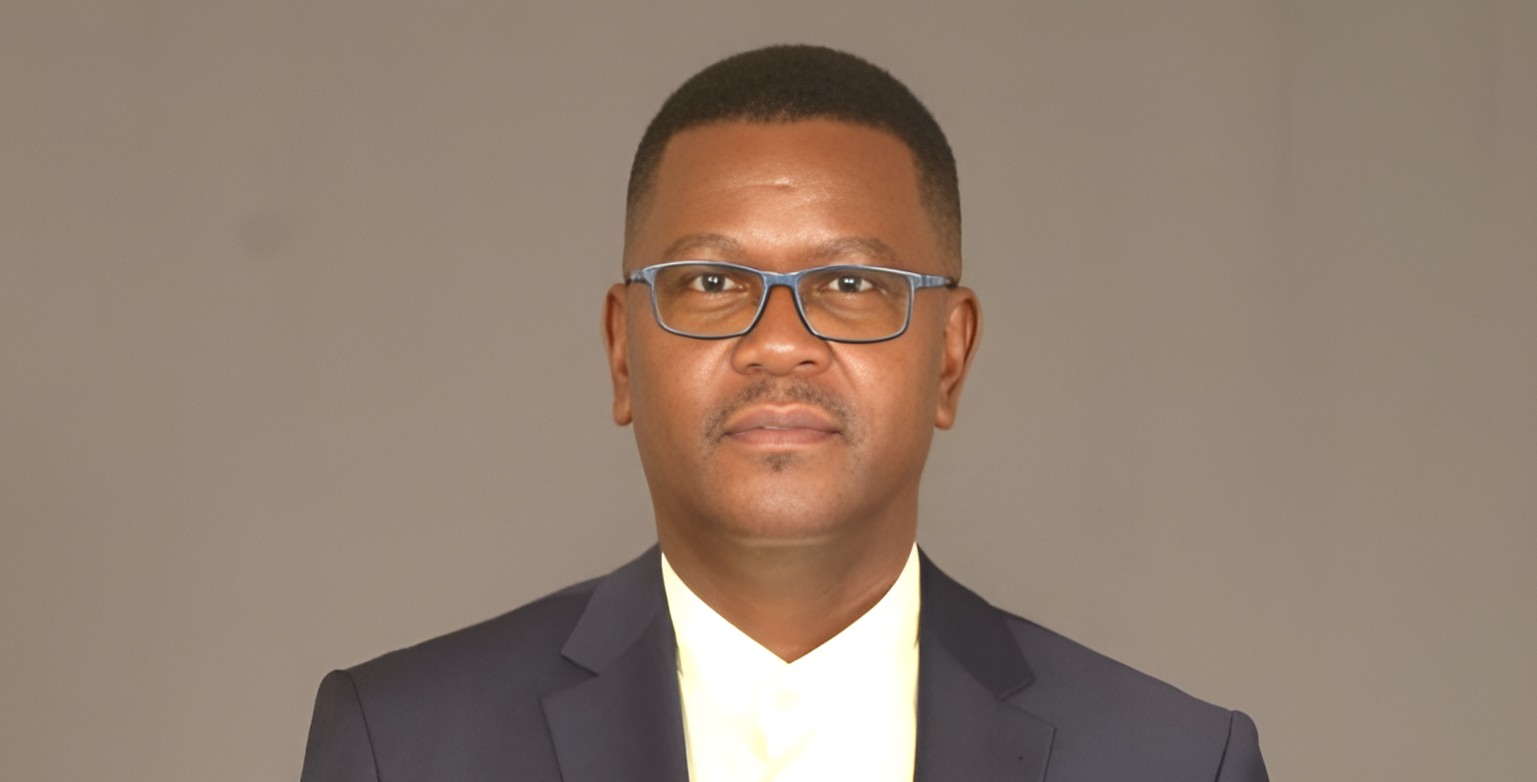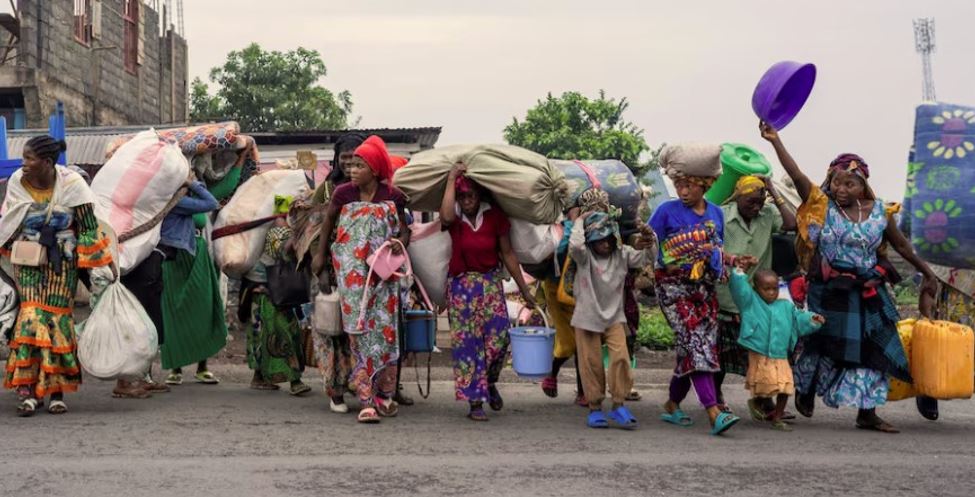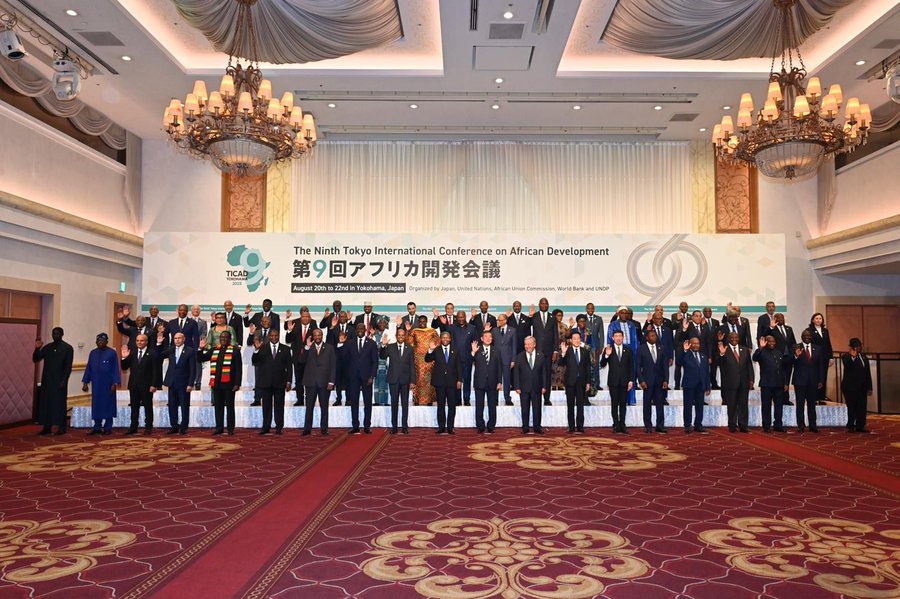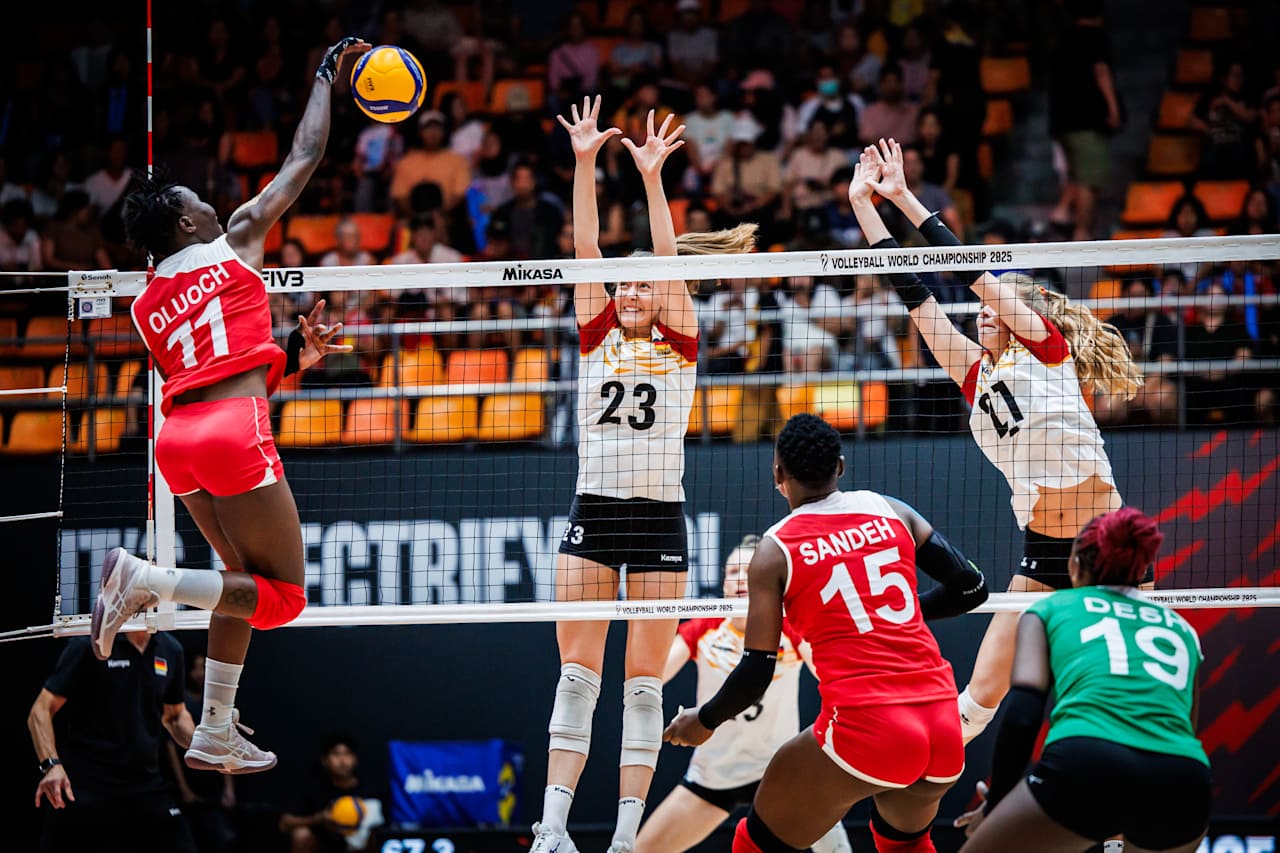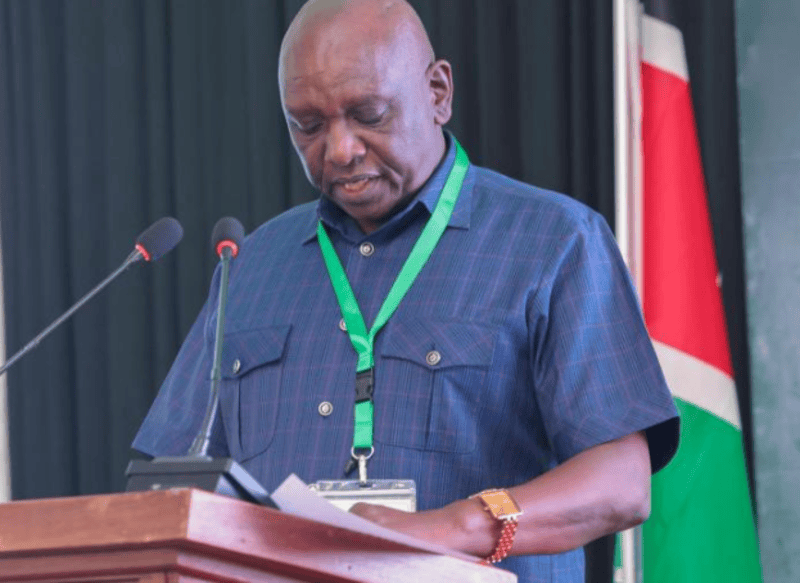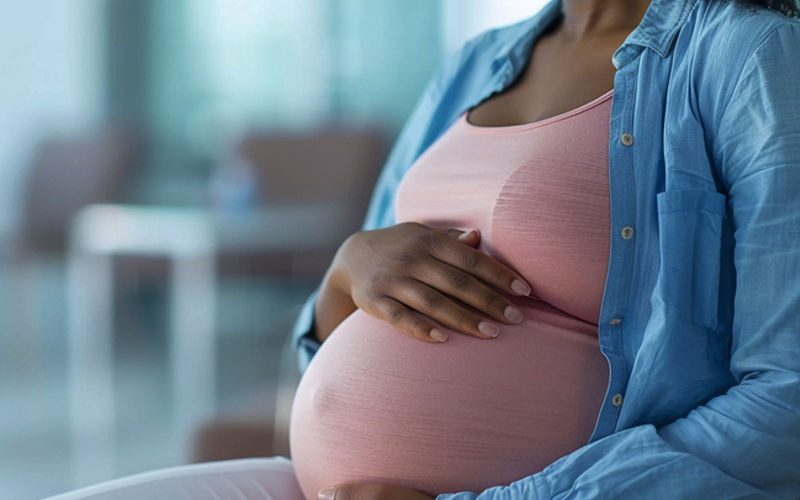Sudanese students find solace in Rwanda after war disrupts learning at home
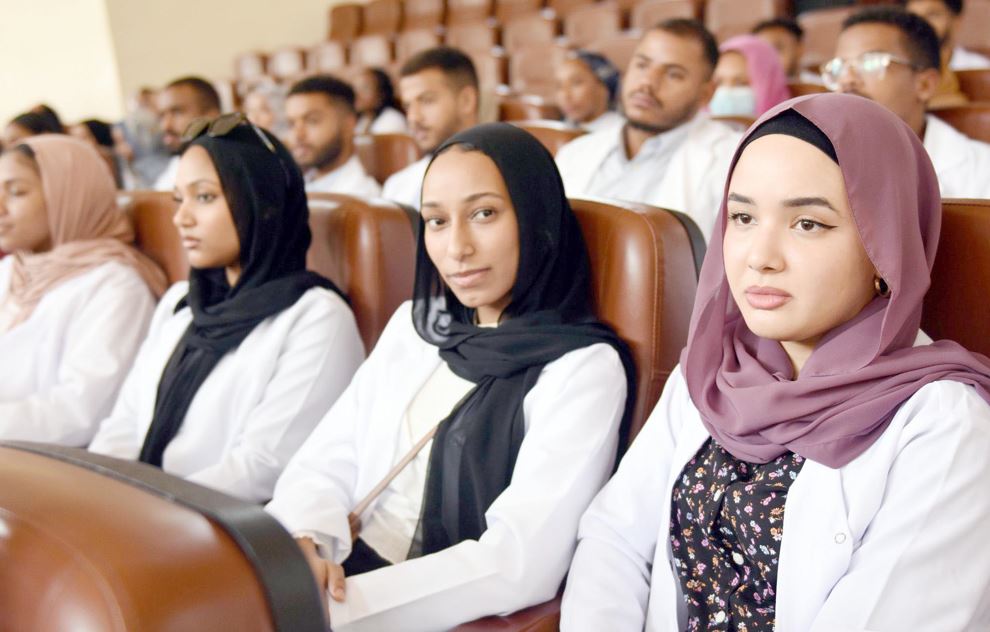
The Sudanese community in Rwanda has been growing, with students joining universities in the East African country.
It is exactly one year since the government of Rwanda took in Sudanese medical students to complete their studies at the University of Rwanda after war broke out in their country.
Even as the over 2,000 students complete their studies and prepare to go back to their country, the civil war which was triggered by a falling-out between two Sudanese generals still rages on, almost two years later, and the country is still largely insecure.
More To Read
- WFP aid convoy attacked in Sudan's North Darfur, food relief trucks torched
- Sudan government relocates ministries from war-ravaged Khartoum to safer cities
- Scribbled lines of life - hunger and hope in a Darfur city
- Sudan army accused of torture, 'execution chambers' in Khartoum as war fuels famine, cholera crisis
- Cholera kills 40 in Sudan’s worst outbreak in years
- ‘Only hunger and bombs’ for besieged civilians in Sudan’s El Fasher
Many of the students have no homes to go back to after bombs destroyed their houses and war separated their families, leaving their future looking bleak.
Save for a deep longing to reunite with their surviving relatives, many students are apprehensive about going back to a country where fighting seems to be intensifying.
Mohamed Al-Sadiq recalled how the war broke out as he was preparing to attend classes.
“The war started on April 16, 2022. It was a Saturday; I will never forget that day. The moment we left the house, we heard heavy sounds of weapons and shells, then the sounds got louder, so we returned home, frightened,” Mohamed said.
His brother who lived nearby called and told them that the army and the forces supporting it —the Rapid Support Forces — had disagreed and a war ensued.
After several hours, the army announced that these disagreements would end within a day or two, but that never happened.
Curfew
What followed was a curfew similar to the lockdown imposed when the Covid-19 pandemic hit, which was announced over the radio. People stayed in their houses hoping calm would be restored.
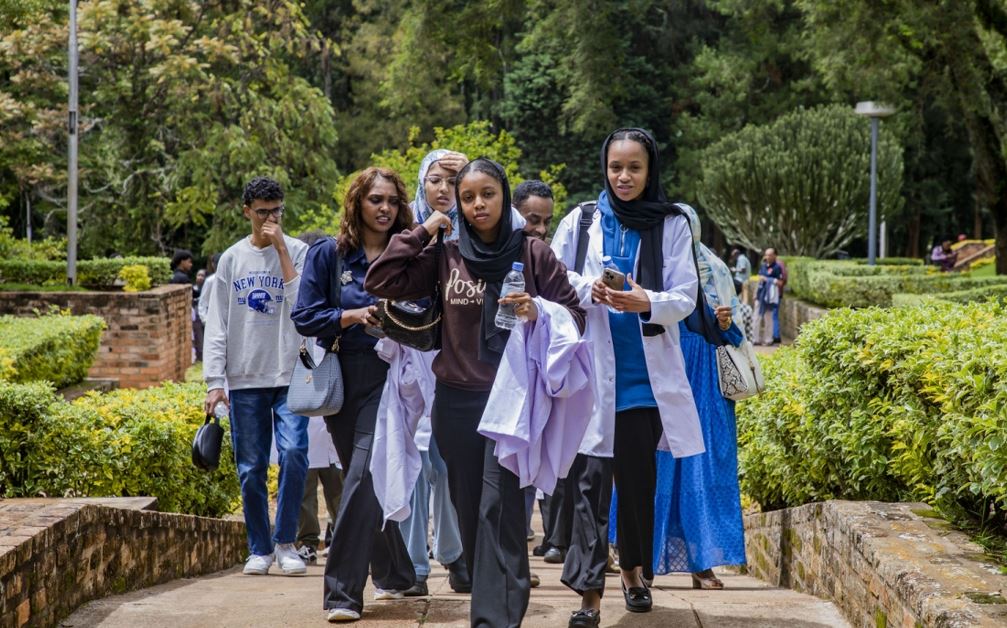 Some of the Sudanese medical students who have been in Rwanda for a year. (Photo: The New Times, Rwanda)
Some of the Sudanese medical students who have been in Rwanda for a year. (Photo: The New Times, Rwanda)
However, things just got worse and houses were no longer safe since some were being shelled.
With people now dying, Mohamed’s family fled to northern Sudan, hoping to return when the war ended.
With universities closed, Mohamed looked for jobs to do in a bid to save money with plans to pursue studies in another country.
“Rwanda was the solution for me and many other students in the same predicament. It welcomed us with open arms,” he said.
In Rwanda, Mohamed found life different from what he was used to in Sudan. But he liked the Rwandan culture, way of life, and the beautiful atmosphere.
“I can say that it is the safest and cleanest country in the world. They care about cleanliness very much,” he said.
Another student, Amina Nusrat (not her real name), who also found herself in Rwanda after war broke out in Sudan, remembered waking up to frantic messages from relatives and friends. Everyone was panicking.
The war first broke out in the North where her grandparents lived. She could hear the sound of bombs as she spoke to her grandparents on the phone. A few days later, fighting broke out in the Sudanese capital Khartoum.
Amina was in the middle of her exams, which were now disrupted by the war. She had to stay at home.
“I could hear bombs while in the house and I got terrified. At this point shops and roads were closed,” she said.
She stayed indoors for 10 days before the family moved to her uncle’s home for safety since their neighbourhood was being bombed. They stayed there for four months before fleeing after security deteriorated.
The hardest part for Amina was escaping Khartoum to the north. It took them 12 hours. On the way, rebels took their money and belongings, threatening not to allow them to leave Khartoum.
“‘You will die here with us,’ they would tell us. I suffered from post-traumatic stress disorder for a long time. I couldn’t sleep for many weeks after that. My head was whirling with the sounds of bombs and aeroplanes,” she said.
In Sudan, Amina’s family lived comfortably as her father operated one of the best medical laboratories in Khartoum which played a key role during the coronavirus pandemic. She had her own car.
But all that changed when war broke out following the ouster of President Omar al-Bashir. Her father could no longer work and after some time the building where he ran his business was shelled and he lost everything.
"Rich foreigners"
She said the only challenge during her stay in Rwanda is being overcharged by landlords and shopkeepers who treat them as “rich foreigners”.
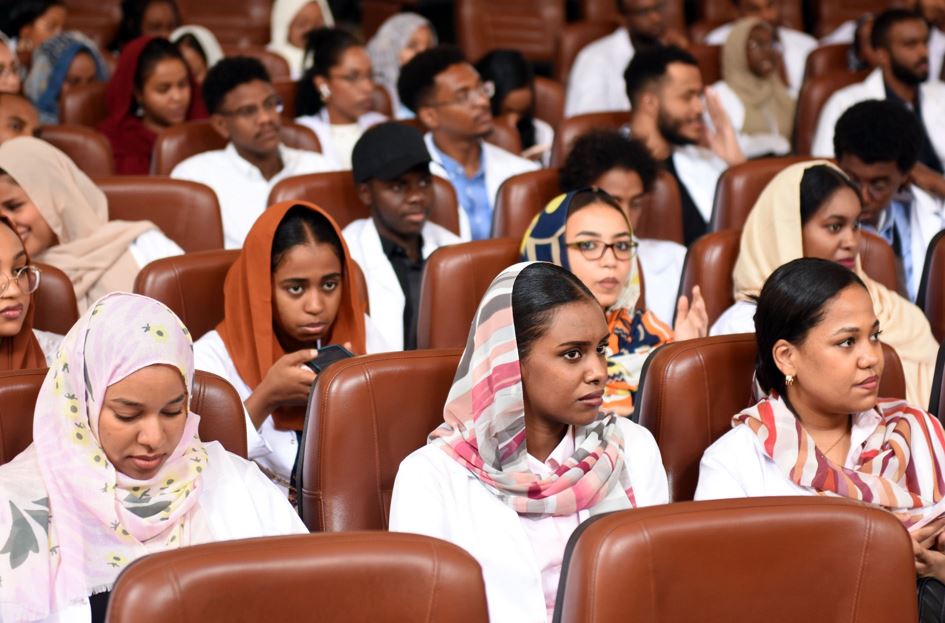 Some of the 160 Sudanese students from Sudan at a reception held to welcome them in Rwanda. (Photo: The New Times, Rwanda)
Some of the 160 Sudanese students from Sudan at a reception held to welcome them in Rwanda. (Photo: The New Times, Rwanda)
She stays in a four-roomed house together with seven others, for which they $1,000 per month. But locals pay around $450 for such a house.
“In three months, I will complete my studies. I know the war is still ongoing in my country but I can’t wait to reconnect with my family. It has been very hard being away from them, I miss them so much. In Sudan internet is unreliable so I take long without hearing from them,” said Amina.
She said that even though what she experienced in Sudan when the war broke out is still fresh in her mind, she has adjusted well in Rwanda and would not mind settling there if her family was with her.
“The cultural differences were stark when we first came. We ate eggs and Irish potatoes for about two months because that was the only thing we were used to. But now I’m eating Rwandan food without any problem. I enjoy African tea, beans and rice too; I have experienced a new culture and I will be forever grateful,” she said.
She revealed that some of her family members back in Sudan have been beaten, imprisoned and killed.
“The experience of war is something I never thought about but am now living it. I didn’t think politics would directly touch me but I was just naïve,” Amina said.
The Sudanese community in Rwanda has been growing, with students joining universities in the East African country.
Ibrahim Mohamednoor Abbas arrived recently, and now studies at the Adventist University in Rwanda’s capital Kigali. His parents fled to Egypt to escape the war in Sudan.
“I miss my mum so much, but I have nothing to do,” he told The Eastleigh Voice.
He was an electrical technician back in Khartoum, but the war disrupted his daily life. His family’s home was bombed. Luckily, there was no one at the time.
After arriving in Rwanda, Ibrahim teamed up with another student and started a repair shop in downtown Kigali from where they repair phones, laptops and other gadgets.
The Sudanese University of Medical Sciences and Technology (UMST), where they were studying, is also relocating to Rwanda after purchasing the Kigali Institute of Management (KIM) premises.
The university with 14 faculties is currently finalising processes of starting operations in Rwanda. Its premises in Sudan were also shelled, and with the war showing no signs of ending soon, its owners opted to exit the country and set up a university in Rwanda, a major setback to education in Sudan.
The growth of the Sudanese population in Rwanda has enhanced the local economy. Due to their growing numbers, some Sudanese have opened up restaurants where they sell their local foods.
The restaurants also serve as meeting places for the Sudanese who hope that guns will soon fall silent in their country.
Top Stories Today
